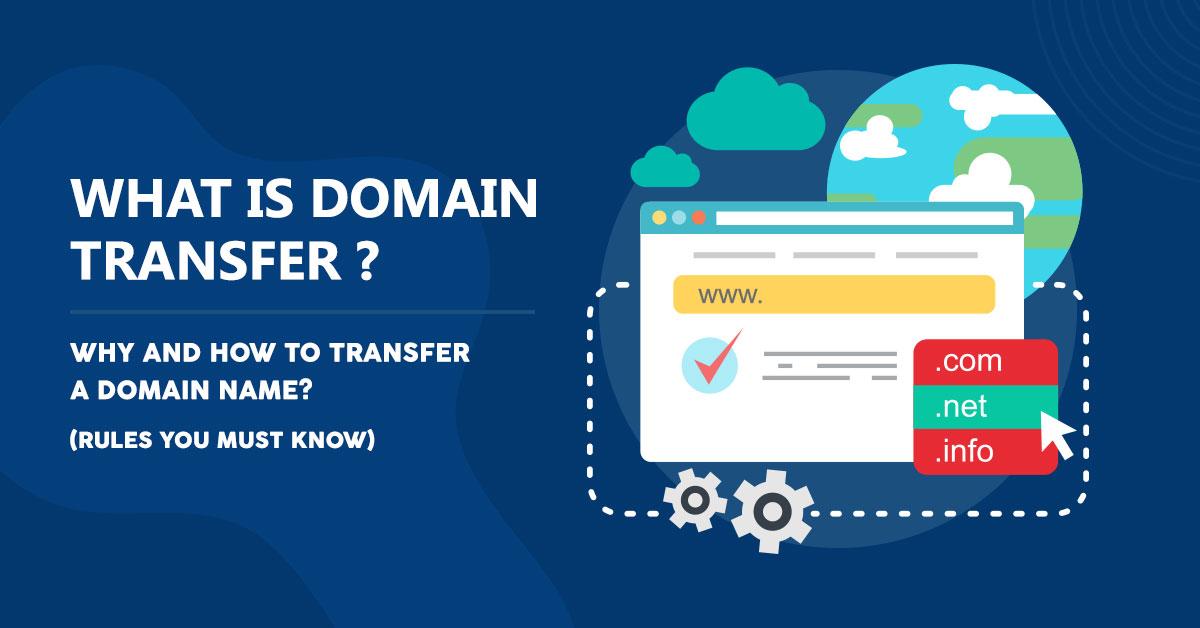Table of Contents
- Understanding the Benefits of Buying a Domain from Another Owner
- Navigating the Domain Acquisition Process with Confidence
- Evaluating the Value of a Domain Before Purchase
- Effective Negotiation Strategies for Domain Buyers
- Ensuring a Smooth Transfer and Ownership Transition
- Q&A
- Insights and Conclusions
Understanding the Benefits of Buying a Domain from Another Owner
Acquiring a domain from another owner can be a strategic move for any business or individual looking to enhance their online presence. One of the primary advantages is the potential for established traffic. If the domain has been live previously, it may already have a flow of visitors and backlinks, which can significantly reduce the time and effort needed to gain traction in search engine rankings. This kind of visibility can provide a head start compared to purchasing a brand-new domain.
Moreover, buying a domain from a current owner can also grant you access to a name that aligns perfectly with your brand identity. Rather than settling for a less relevant option that might be available on the market, you can negotiate for a name that truly resonates with your target audience. This helps in delivering a strong first impression, ultimately enhancing brand recognition and trust. When a domain reflects your business or mission, it can bolster your marketing efforts substantially.
Another noteworthy benefit is the opportunity for negotiation and potential cost savings in the long run. Purchasing a domain from an existing owner allows you to discuss the price based on the domain’s current value, its age, and market demand. Additionally, you may inquire about any content or social media accounts linked to that domain, which can be an added advantage if they have an existing community. Understanding these dynamics can help you make an informed decision, giving you leverage in the transaction process.


Navigating the Domain Acquisition Process with Confidence
Acquiring a domain from someone else can feel like navigating a complex maze, but with the right approach, you can do so with ease and confidence. Start by doing thorough research on the domain you wish to purchase. Understand its value in terms of branding, SEO potential, and the niche it represents. Check its history using tools like WHOIS; this will give you insights into previous ownership and its reputation. Knowing these details can help you in negotiating a fair price.
Once you’ve assessed the domain, it’s time to reach out to the current owner. Craft a professional and friendly message expressing your interest. Here are some key points to include in your communication:
- Your purpose for wanting the domain.
- A brief introduction about yourself or your business.
- A general idea of your budget, if comfortable.
- Your willingness to negotiate.
After establishing initial contact, be prepared for fruitful negotiations. Understand that the current owner may have emotional ties to their domain, which can impact their willingness to sell. To facilitate a smooth transaction, consider using an escrow service for secure payment processing. This not only protects your investment but also gives the seller confidence in the transaction. ensure that you properly transfer the domain after purchase to avoid any future disputes.


Evaluating the Value of a Domain Before Purchase
When you’re looking to buy a domain from someone, it’s essential to assess its value thoroughly. The domain’s age, which refers to how long it has been registered, can significantly affect its credibility and SEO potential. Generally, older domains are perceived as more trustworthy by search engines and potential visitors. You can use tools like WHOIS to find out when it was registered and see if it has a history of use.
Another critical factor is the domain name itself. A domain that is short, memorable, and contains relevant keywords can fetch a higher price. Consider the following aspects when evaluating the name:
- Length: Shorter domains are usually more desirable.
- Relevance: Does it align with your business or niche?
- Brandability: Is it unique enough to stand out?
Lastly, checking the domain’s SEO metrics can offer valuable insights into its past performance. Tools like Ahrefs or SEMrush can provide data on backlinks, traffic volume, and rankings. Here’s a simple table summarizing key metrics to consider:
| Metric | Description |
|---|---|
| Domain Authority | A score that predicts how well the domain will rank. |
| Backlink Profile | The quality and quantity of sites linking to the domain. |
| Traffic History | Trends of visitors to the domain over time. |
By carefully evaluating these elements, you can make a more informed decision and ensure you’re investing wisely when purchasing a domain from someone.


Effective Negotiation Strategies for Domain Buyers
Negotiating the acquisition of a domain requires a blend of strategy, preparation, and interpersonal skills. Start by conducting thorough research on the domain you’re interested in. Understand its history, prior ownership, current market value, and how it aligns with your brand’s objectives. This knowledge not only arms you with valuable information but also lends credibility to your position during discussions.
When initiating contact with the domain owner, use a professional yet friendly tone. Establishing rapport can be just as important as the deal itself. Here are a few strategies to enhance your negotiation approach:
- Be transparent: Share your intended use for the domain to foster trust.
- Highlight mutual benefits: Explain how the sale can benefit both parties.
- Be patient: Don’t rush the owner; a thoughtful approach can open doors to better terms.
- Consider alternative offers: If the price is too high, discuss flexible payment options or offer a lower amount.
document all discussions and agreements to avoid misunderstandings as negotiations progress. Create a clear timeline for when decisions should be made and incorporate milestones to measure progress. This organizational strategy not only keeps the negotiation on track but also demonstrates your commitment to a successful and professional transaction.
| Negotiation Element | Description |
|---|---|
| Research | Gather data on the domain’s history and market value. |
| Communication | Use a friendly yet professional tone to build rapport. |
| Transparency | Clearly articulate your intentions for the domain. |
| Documentation | Keep track of all offers and agreements throughout the process. |


Ensuring a Smooth Transfer and Ownership Transition
Transferring a domain name from one owner to another is a critical part of the buying process that requires careful planning and clear communication. To begin with, both parties should agree on a timeline for the transfer to ensure a smooth transition. This timeline not only maintains transparency but also sets expectations for both the buyer and the seller. Consider discussing the following aspects:
- Communication channels: Establish preferred methods for updates and questions.
- Payment schedules: Clarify payment terms and deadlines.
- Transfer process: Ensure both parties understand the steps involved in the transfer.
Another crucial element is verifying that the domain is free of any locks or restrictions that might hinder the transfer. The seller should unlock the domain and provide the necessary authorization codes. Conducting a final check on the domain’s status can prevent future complications. Both parties should consider these essential points:
- Domain expiry date: Ensure the domain registration is up-to-date.
- Registrar requirements: Familiarize yourselves with the specific requirements of your registrar.
- Transfer fees: Discuss any additional costs that might arise during the transfer.
It’s also advisable to execute the transfer through a reliable domain registrar known for facilitating smooth transitions. Using an established platform can offer security and support throughout the process. To better illustrate the benefits, here’s a brief summary of some trustworthy registrars:
| Registrar | Transfer Fee | Support |
|---|---|---|
| Namecheap | $10 | 24/7 Chat Support |
| GoDaddy | $15 | Phone & Email Support |
| Bluehost | $12 | Email Support |
Q&A
Q&A: Buying a Domain from Someone Else
Q1: What does it mean to buy a domain from someone? A1: Buying a domain from someone involves purchasing an internet domain name that is currently owned by another individual or entity. This usually takes place through negotiation with the current owner, who may decide to sell it for a specific price.Q2: Why would I consider buying a domain that’s already taken? A2: Purchasing an existing domain can offer several advantages. For one, it may already have established traffic, backlinks, or recognition, which can be beneficial for your online presence. Additionally, a name that resonates with your brand can enhance credibility and make it easier for customers to find you.
Q3: How do I find out who owns a specific domain? A3: You can use a WHOIS lookup service, which can provide details about the domain’s ownership, including the registrar, registration date, and sometimes contact information. Some domains, however, have privacy protection, which obscures the owner’s details.
Q4: What steps should I take before approaching the current owner? A4: Research the domain’s value and market trends to gauge a fair buying price. Understanding the current state of the website associated with the domain (if applicable) is also essential. Prepare a clear proposition and be respectful and polite in your communication with the owner.
Q5: How do I negotiate the price of the domain? A5: When negotiating, start by expressing genuine interest in the domain and ask if the owner is open to selling. Be prepared for back-and-forth discussions and have a budget in mind. It can be helpful to frame your offer in a way that highlights the domain’s potential benefits to you.
Q6: What methods can I use to finalize the purchase? A6: If the owner agrees to the sale, you can use a domain escrow service, which acts as a neutral third party to handle the transaction securely. This protects both the buyer and seller until the transfer is complete. Once the agreed amount is transferred, the domain registry will update the ownership details.
Q7: Are there risks involved in buying a domain from someone? A7: Yes, there can be risks, such as hidden legal issues or disputes over trademarks, so it is essential to perform due diligence. Make sure the seller has the right to sell the domain and that it’s free from copyright issues.
Q8: What happens after I buy the domain? A8: Once you successfully purchase the domain, you’ll need to update the registration details to reflect your ownership. After that, you can either launch your website on the domain, hold it for future use, or sell it later for a profit.
Q9: What if I find the process daunting? A9: It can feel overwhelming, especially if you’re new to the process. Consider working with a domain broker who can help facilitate the purchase and negotiate on your behalf. Having professional assistance can simplify the process and reduce stress.
Q10: Can I buy a domain as an investment? A10: Absolutely! Many people buy domains with the intention of reselling them at a higher price later. The key is to research market trends and identify names that have a good potential for appreciation. Investing in domains can indeed be lucrative with the right strategy. — This engaging Q&A aims to clarify the domain buying process while inviting further questions from readers. Whether a beginner in the domain market or someone looking to expand their online portfolio, these insights can help navigate the complexities involved.

